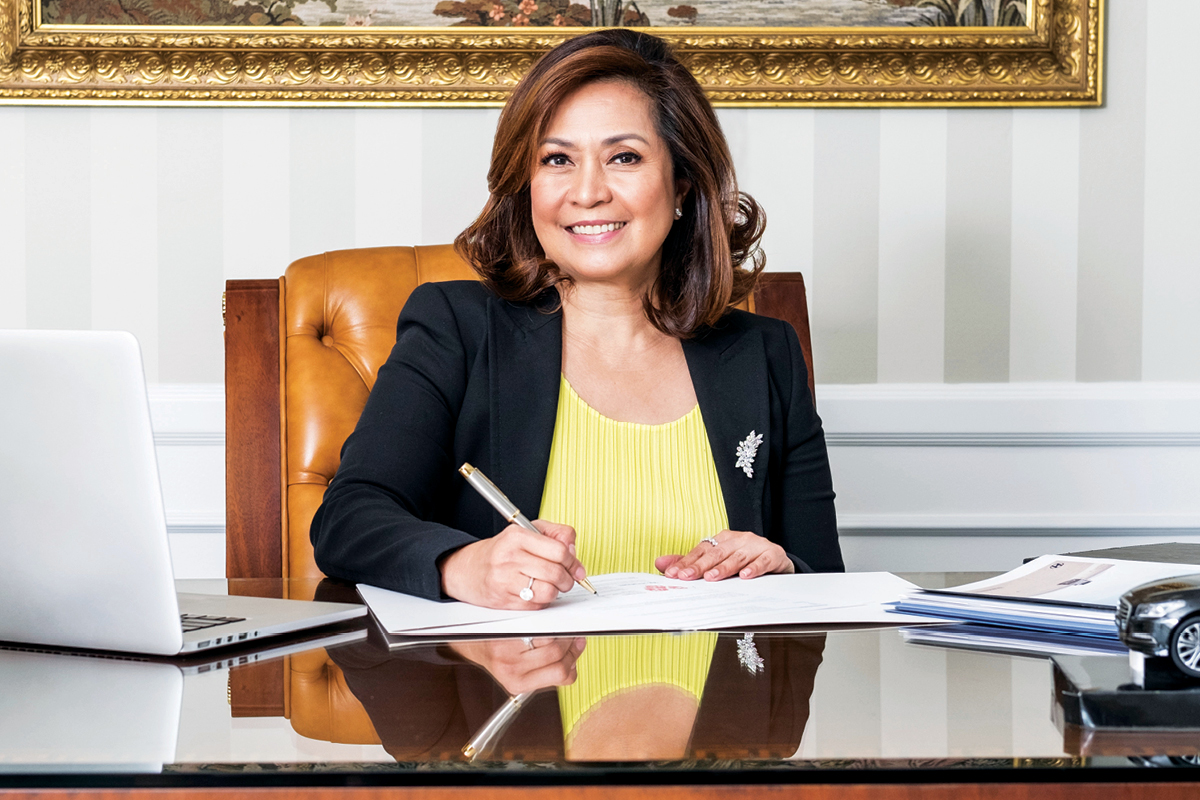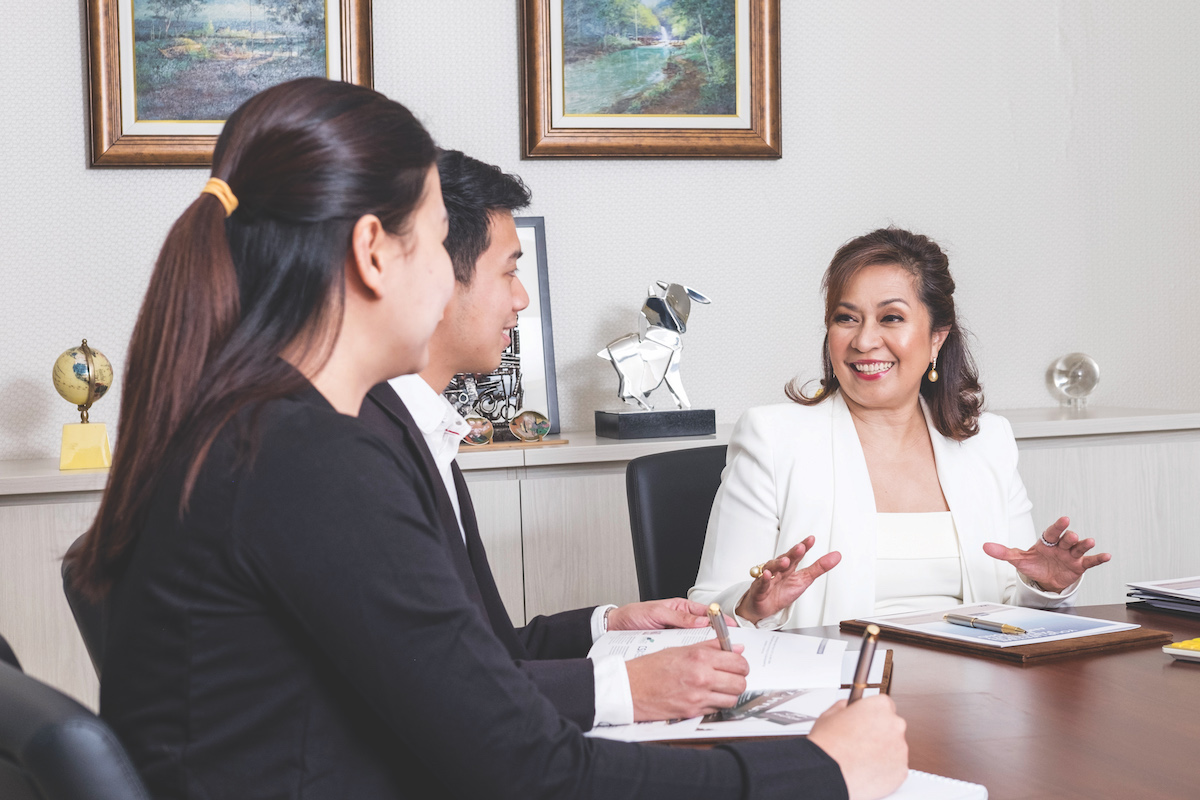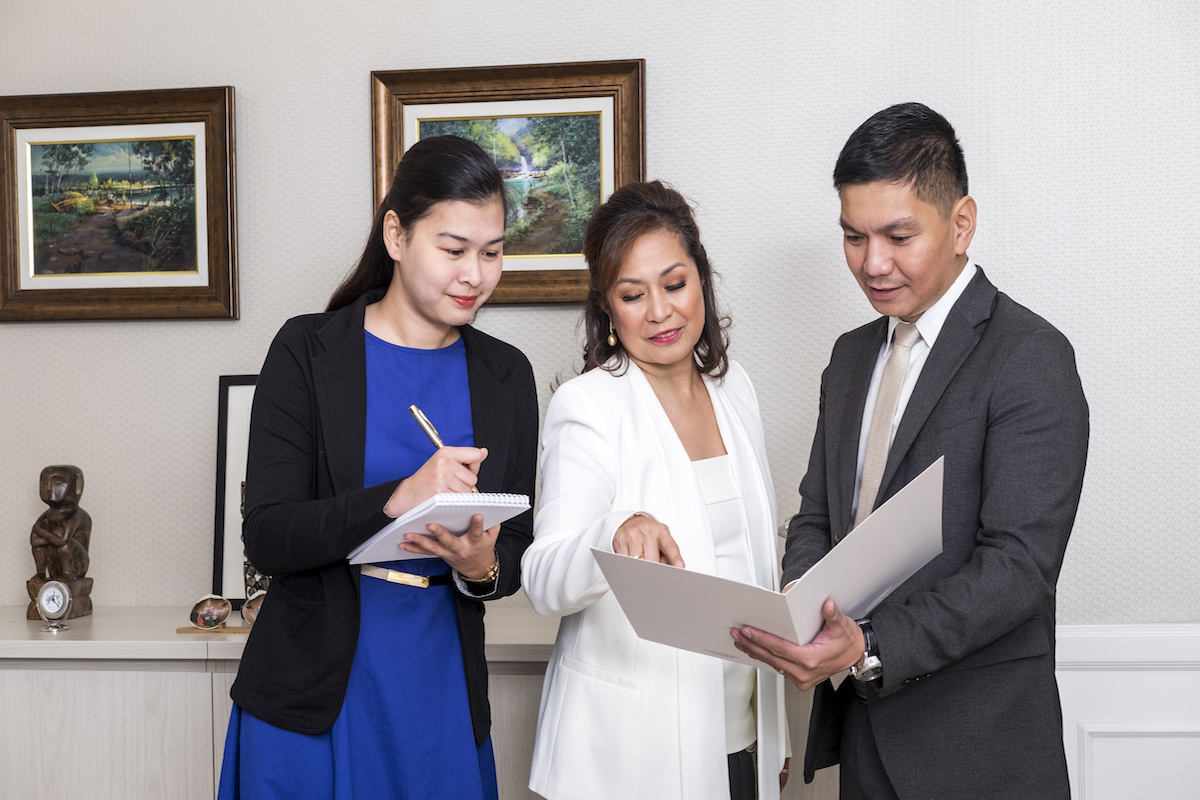When you’re the head of the distributorship of a top global car brand, picking your favourite vehicle isn’t always easy. “It’s like asking who’s my favourite daughter or who’s my favourite employee,” says Maria Fe Perez-Agudo (Fe), President and CEO of Hyundai Asia Resources, Inc. (HARI). Fe has, of course, driven all of Hyundai’s vehicles and has a different one for each day of the week.

“On Monday, I might use the Starex, then on Tuesday I’ll try the Santa Fe and on Wednesday I could go for my Tucson,” she says. “All these Hyundai vehicles must be ready – the driver doesn’t know which one I will choose for which day.”
While Hyundai is now among the leading brands on Philippine roads, this wasn’t the case when Fe joined the company in 2001. “It was an unknown brand back then,” Fe says. It couldn’t have been a more challenging time for her to take up a position at HARI.
Not only was Hyundai – a South Korean brand – non-existent in the Philippines but two months after Fe signed on, the September 11 attack happened in New York City. “I woke up and everything was frozen,” Fe says. “The business mood was so down.”
The situation in the US, however, taught her a valuable lesson on how Hyundai operated and how to put this to use in the Philippines. “They asked me, ‘Okay, what’s our target for this month?’,” she says. “It was business as usual for them.” Fe adds that the reaction was a consequence of mindset. “When you think about it, they are right,” she continues.
“One incident of that kind should not impact the long-term direction of the business. It could have a short-term influence, but then you should not give up on the long-term plan. This was my way of understanding and marrying the business model of Hyundai in Korea and Hyundai around the world.”
Having carved out a successful career in real estate, Fe never envisioned herself in the automotive sector. “Call it fate or destiny,” Fe says. “I was not looking for a job in the sector. The ambition was there to seek new ventures in life but not really to move from real estate to the automotive industry.” While she jumped at the opportunity at Hyundai, entering a traditionally male-dominated industry wasn’t smooth sailing, and it is something Fe has spoken about often.
In an interview with Business World, she recalls being told by one of the South Korean business executives, “You are a woman. What do you know about cars?” to which she retorted, “You are a Korean. What do you know about the Philippine market?” It is this fierce determination that has not only seen Fe break down barriers at Hyundai but has reinforced her passion for empowering other women as well.
“I am a firm believer in education as the best way to empower people,” she says. “Women, like men, should receive the best education through coaching, mentoring and speaking forums. It can also be done through investing in social initiatives related to education. For the past 10 years, we have engaged in CSR through HARI Foundation, Inc. This advocacy is close to my heart.
And this is what I want to be known for in the Philippines and globally: how far we have gone to touch peoples’ lives, how much we can enjoin our stakeholders to share in order to uplift the conditions of the less fortunate, and how we can drive change so that communities are able to be self-reliant.”

When it comes to leadership roles in any industry, Fe believes it is not a question of gender. “I share the conviction that you don’t need a title to be a leader,” she says. “You don’t need to be a ‘Miss’ or ‘Mr’ because it is really about the passion and conviction that you can do more and achieve more – that you can find ways to make things better. Most importantly, whether you are a woman or a man, you can initiate change.
At the end of the day, the economy could be very powerful if women and men all pulled together in the same direction. But of course, I’ll be happy to see talented women go up the ranks, because they must pursue their purpose in life and make a difference in the lives of people.”
Building Hyundai’s presence in the Philippines meant Fe had to fully understand its operations in South Korea. This involved several trips to the country to get an idea of its strategy. “During the business set-up, we had to work out how to marry the cultural differences between a Philippine and a Korean business structure in terms of understanding processes and decision-making,” she says. “They were totally different.”
From there, Fe had to deal with understanding the customers. “You realise that the behaviour patterns of buyers are different in every region and in every segment,” she says. “I thought it was simply a car you are offering customers and that’s it. But it’s also about understanding the needs of the particular buyer. And then you realise, it’s really the wife who is making the decision.”
The next step for Fe was how to look beyond a car’s external features when trying to make a sale. “You’re no longer just selling a motor vehicle, you must be able to sell a space,” she says. “A space in which you can connect with people. You could do business inside that space because of that connection;
and you could even sleep in it if it’s driverless.”
Because of these other needs, Fe believes in the importance of making an emotional connection when selling cars. “It’s no longer about just buying the product,” she says. “Customers look for the experiences they associate with a brand. We understand the impact of the experience economy and highlight our passion for customer-driven innovation.
We developed the marketing phrase ‘Gusto Ko, Kaya Ko, Sama Tayo’, which can be loosely translated as ‘We can give you your heart’s desire. We are your partner in your life’s journey.’ This catchy marketing phrase has evolved into a corporate mindset, that of assuring customers that Hyundai responds to their needs and wants, and is there for them 24/7.”
Over the years, Fe has seen HARI make a phenomenal rise from zero ranking to one of the top three car brands in the Philippines. She fosters a culture of excellence within the business and says she won’t assign her employees a task she cannot do. “I have a business mantra that goes, ‘together is always better’,” she says. “I am in constant touch with all my division heads and dealer principals to ensure that we are on track with our targets and strategic objectives.
“In our company, we embrace diversity so that every individual can be free. I want them to have the freedom to choose, pursue and realise their passion.” To promote this value, Fe encourages people to move into different roles in the company. “They don’t get stuck in their position for three or five years,” she says. “I make sure I put something else on the table otherwise they will get complacent or leave us.”

Under Fe’s leadership, HARI has set up the Hyundai Logistics Center in Calamba City – the first and only green logistics centre in the country – which also houses the Hyundai Dream Center Philippines, a vocational-technical training facility for underprivileged youth who have the potential to start
productive careers in the automotive industry.
In addition, HARI inaugurated the Hyundai Assembly Center during Fe’s tenure, which is one of the many achievements she is proud of.
“It is a testament to Hyundai’s confidence in the Philippine market and the Filipino acumen for business,” she says. “But today, I’d say our greatest achievement has been bringing together a team of dedicated, hardworking, brand-loving people.
We call them the ‘People of Hyundai’. These are our employees, our stakeholders, our partners, our customers and communities whose lives we have touched and made better through our products and services and CSR efforts.
For me, being a socially responsible business is the true heart of the people of Hyundai. This business would not have come this far without the people of Hyundai behind it.”


